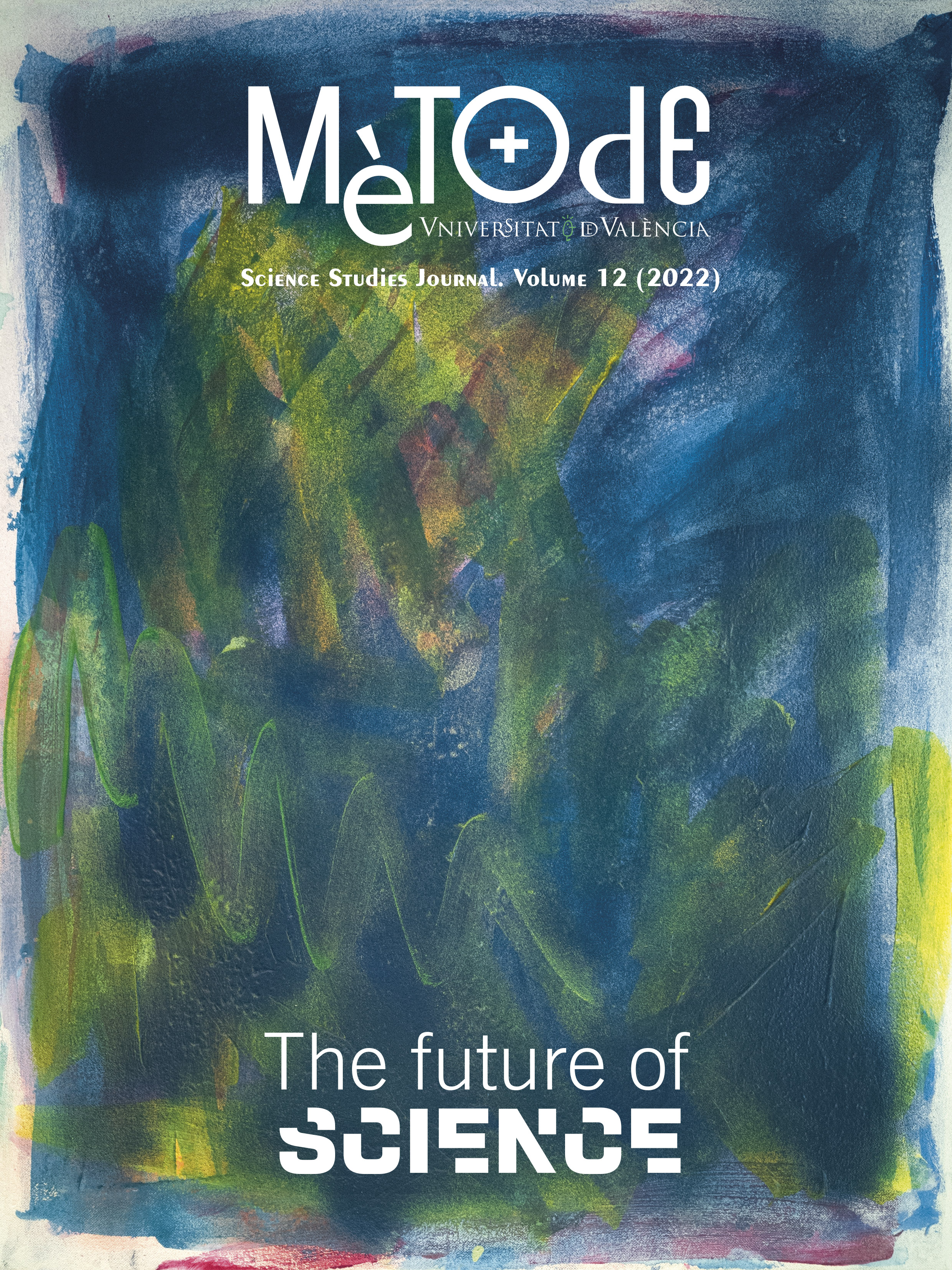Pot la teologia ser una ciència? Una reflexió epistemològica
DOI:
https://doi.org/10.7203/metode.12.16612Paraules clau:
teologia, ciència, fe, raó, evidència Resum
Resum
Les institucions acadèmiques han eliminat moltes disciplines de rigor dubtós, però la teologia no n’és una i es continua ensenyant en universitats respectables. Aquest article defensa que la teologia no mereix aquest tracte especial. Durant molt de temps ha fingit ser una ciència, però no pot ser-ho mai perquè, en última instància, es basa en la fe i l’autoritat, dos principis contraris al mètode científic. La teologia natural apel·la a l’evidència i a la raó, però també falla en aquests intents. Els teòlegs contemporanis admeten que la seua disciplina no és una ciència per se, però continuen legitimant la cerca de significat que fa. També hi ha raons per a dubtar-ne, ja que no és necessari apel·lar a res sobrenatural per a trobar el sentit de les coses.
 Descàrregues
Descàrregues
 Referències
Referències
Adams, M. M. (1992). Fides quaerens intellectum: St. Anselm’s method in philosophical theology. Faith and Philosophy, 9(4), 409–435. https://doi.org/10.5840/faithphil19929434
Adams, R. M. (1979). Moral arguments for theistic belief. In C. F. Delaney (Ed.), Rationality and religious belief (pp. 116–140). University of Notre Dame Press.
Bebbington, D. (2011). The Texas sharpshooter fallacy. Think, 10(27), 71–72. https://doi.org/10.1017/S1477175610000412
Betty, L. S., & Cordell, B. (1987). God and modern science: New life for the teleological argument. International Philosophical Quarterly, 27(4), 409–435.
Craig, W. L. (2003). Design and the anthropic fine-tuning of the Universe. In N. A. Manson (Ed.), God and design: The teleological argument and modern science (pp. 170–192). Routledge.
Craig, W. L., & Moreland, J. P. (Eds.). (2012). The Blackwell companion to natural theology (Vol. 49). John Wiley & Sons. https://doi.org/10.1002/9781444308334
Dawkins, R. (1996). The blind watchmaker: Why the evidence of evolution reveals a universe without design. W. W. Norton & Company.
Dawkins, R. (2016). The god delusion. Random House.
Edwards, D., Ashmore, M., & Potter, J. (1995). Death and furniture: The rhetoric, politics and theology of bottom line arguments against relativism. History of the Human Sciences, 8(2), 25–49. https://doi.org/10.1177/095269519500800202
Flew, A. (2000). Theology and falsification. Philosophy Now, 29. https://philosophynow.org/issues/29/Theology_and_Falsification_A_Golden_Jubilee_Celebration
Gould, S. J. (1999). Rocks of ages: Science and religion in the fullness of life. Ballantine.
Henderson, D. E. (2008). Implementing methodological secularism: The teaching and practice of science in contentious times. In A. Keysar & B. A. Kosmin (Eds.), Secularism & science in the 21st century (pp. 105–116). Institute for the Study of Secularism in Society and Culture.
Hintikka, J. (1981). Kant on existence, predication, and the ontological argument. Dialectica, 35(1), 127–146.
Huttinga, W. (2014). ‘Marie Antoinette’or Mystical Depth? Herman Bavinck on Theology as Queen of the Sciences. In J. Eglinton & G. Harinck (Eds.), Neo-Calvinism and the French revolution (pp. 143–154). Bloomsbury T&T Clark. http://doi.org/10.5040/9780567662415.0014
Koons, R. C. (1997). A new look at the cosmological argument. American Philosophical Quarterly, 34(2), 193–211.
Mackie, J. L. (1955). Evil and omnipotence. Mind, 64(254), 200–212. https://doi.org/10.1093/mind/LXIV.254.200
Malcolm, N. (1960). Anselm’s ontological arguments. The Philosophical Review, 69(1), 41–62. https://doi.org/10.2307/2182266
McGrath, A. E. (2011). Surprised by meaning: Science, faith, and how we make sense of things. Westminster John Knox Press.
Nielsen, K. (1967). Wittgensteinian fideism. Philosophy, 42(161), 191–209. https://doi.org/10.1017/S0031819100001285
Oppy, G. (2010). Uncaused beginnings. Faith and Philosophy, 27(1), 61–71. https://doi.org/10.5840/faithphil20102714
Pinker, S. (2018). Enlightenment now: The case for reason, science, humanism, and progress. Penguin.
Pruss, A. R. (1998). The Hume-Edwards principle and the cosmological argument. International Journal for Philosophy of Religion, 43(3), 149–165.
Rowe, W. L. (1979). The problem of evil and some varieties of atheism. American Philosophical Quarterly, 16(4), 335–341.
Solon, T. P. M., & Wertz, S. K. (1969). Hume’s argument from evil. The Personalist, 50(3), 383–392. https://doi.org/10.1111/j.1468-0114.1969.tb08798.x
Thagard, P. (2010). The brain and the meaning of life. Princeton University Press.
Torrance, T. F. (1972). Newton, Einstein and scientific theology. Religious Studies, 8(3), 233–250. https://doi.org/10.1017/S0034412500005904
Trivers, R. L. (1971). The evolution of reciprocal altruism. The Quarterly Review of Biology, 46(1), 35–57. https://doi.org/10.1086/406755
Descàrregues
Publicades
Com citar
-
Resum1875
-
PDF 99
-
(Español)6
Número
Secció
Llicència
![]()
Tots els documents inclosos en OJS són d'accés lliure i propietat dels seus autors.
Els autors que publiquen en aquesta revista estan d'acord amb els següents termes:
- Els autors conserven els drets d'autor i garanteixen a la revista el dret a la primera publicació del treball, llicenciat baix una llicència de Reconeixement-NoComercial-SenseObraDerivada 4.0 Internacional de Creative Commons, que permet a altres compartir el treball amb un reconeixement de l'autoria del treball i citant la publicació inicial en aquesta revista.
- Es permet i s'anima els autors a difondre la versió definitiva dels seus treballs electrònicament a través de pàgines personals i institucionals (repositoris institucionals, pàgines web personals o perfils a xarxes professionals o acadèmiques) una vegada publicat el treball.





